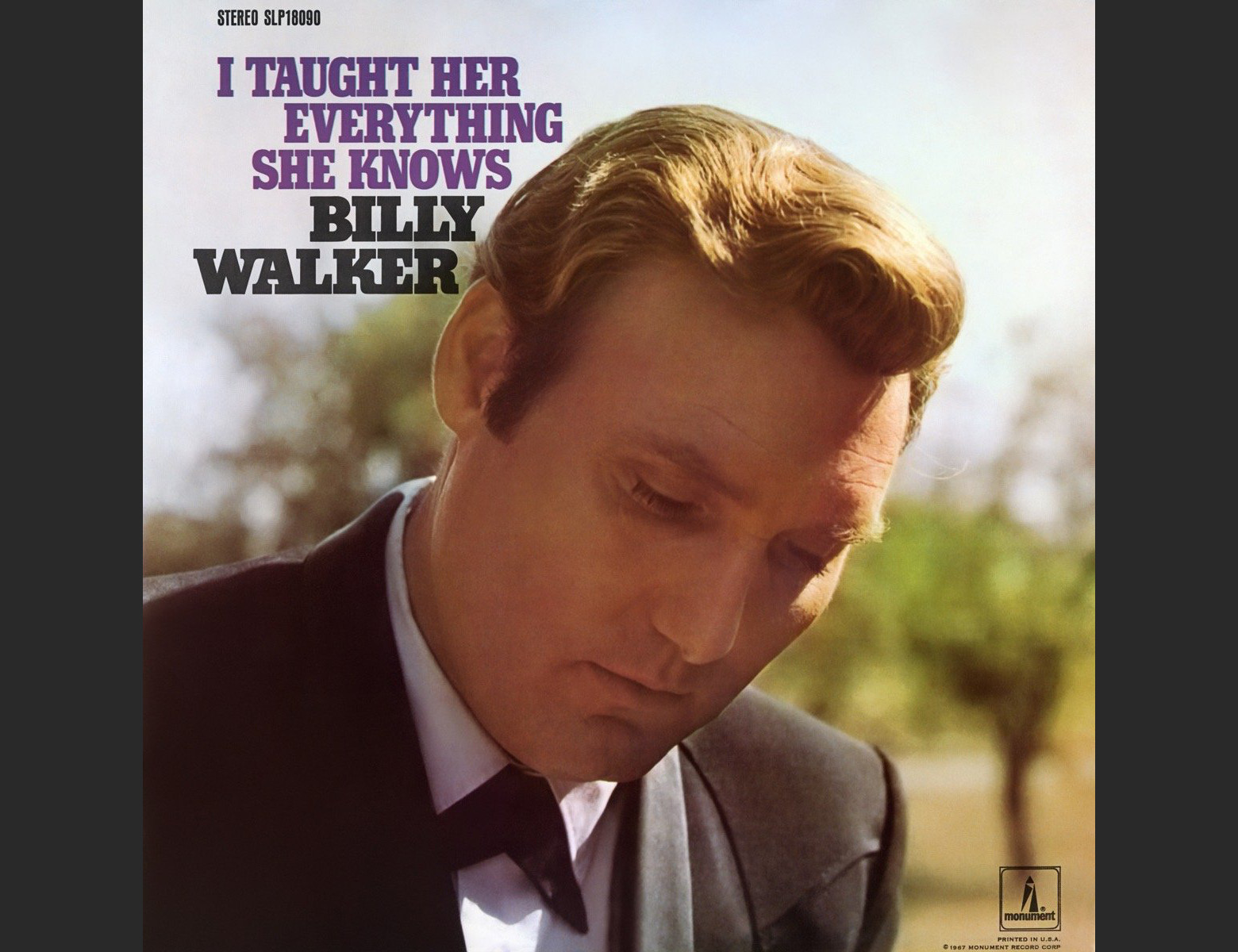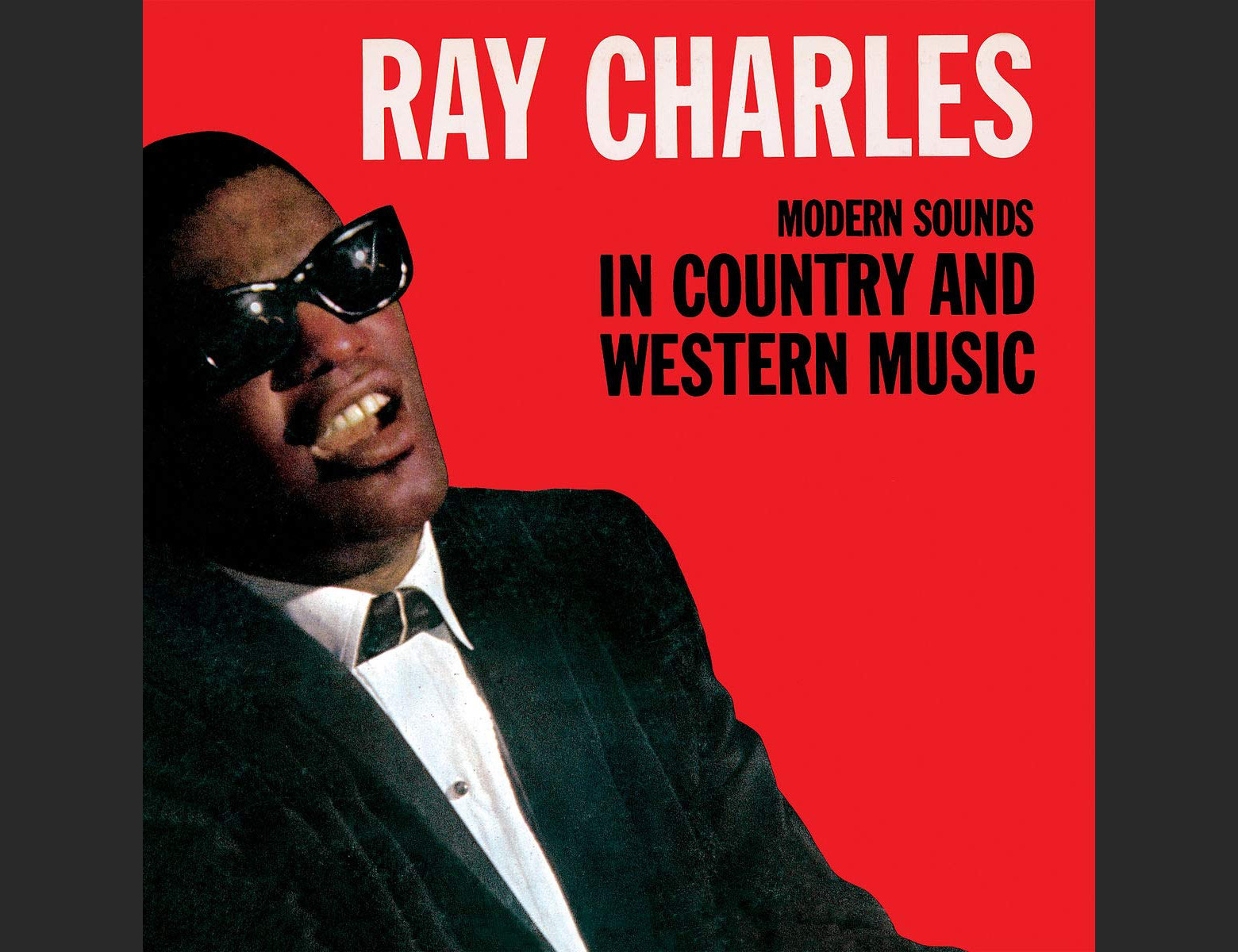In my digital music library, I have a playlist labeled “country hits of 1962.”
There are more than 115 songs on this playlist, from artists like Kitty Wells and Bill Anderson and Faron Young. Only a few can be said to have had any lasting impact on the culture; Patsy Cline’s “Crazy,” Claude King’s “Wolverton Mountain,” Marty Robbins”https://news.google.com/”Devil Woman” and George Jones”https://news.google.com/”She Thinks I Still Care” might be the only ones a general audience might remember.
If you look at Billboard magazine’s rankings of the top country and western singles of 1962, you’ll find some correlation between my subjective opinion about the most poignant songs that year and how they charted: “Wolverton Mountain” was the No. 1 country single; “She Thinks I Still Care” was No. 3, “Devil Woman” was No. 16, and “Crazy” was No. 21.
The No. 2 country single of 1962 was “Misery Loves Company,” which was a Jerry Reed song performed by Porter Wagoner and produced by Chet Atkins. The No. 4 song, Billy Walker’s “Charlie’s Shoes,” was obscure to me, even though it was on my playlist. Then I played it. I only had to hear the opening whistled notes: Oh yeah, that song, about the guy who wishes he was in Charlie’s shoes.
Walker had a solid 60-year career as a country singer; he scored 30 chart hits, and while “Charlie’s Shoes” was his only No. 1 hit, he had a baker’s dozen other Top 10 country hits. Before he found himself as an artist, his manager had him wear a Lone Ranger-style mask onstage and billed him as “The Traveling Texan, the Masked Singer of Country Songs.”
Walker helped Elvis Presley get a gig on the Louisiana Hayride after the young singer opened for him and Slim Whitman at a show at the Overton Park Shell in Memphis in July 1954. He was one of the first to record a Willie Nelson song; his version of “Funny How Time Slips Away” peaked at No. 23 on the Billboard charts in 1961.
After a charity concert in Kansas City in 1963, Walker received a phone call that his father had had a heart attack. He was frantic to get home to Tennessee as soon as possible, so singer Hawkshaw Hawkins, who’d performed on the bill with Walker, gave him his commercial plane ticket. Hawkins would take Walker’s place on a private charter that was leaving later on.
That plane crashed, killing Hawkins, pilot Randy Hughes, singer Cowboy Copas and Patsy Cline.
Walker was still performing in 2006. One night while driving back to Nashville after a performance at the Palm Lake Opry and RV Park in Foley, Ala., the 1996 Chevy van he was driving veered off Interstate 65 in Fort Deposit, Ala., and overturned. Walker, his wife, Bettie, and two members of his band were killed instantly.
I don’t imagine too many people think about Billy Walker these days, but he had a really good year in 1962. In addition to “Charlie’s Shoes,” his song “Willie the Weeper” got up to No. 5 that year. It’s not the same song as the fin de siecle ode to (legal) cocaine use that shares some lyrical ideas with “Minnie the Moocher.” Louis Armstrong and his Hot Seven recorded a smoking instrumental version of the tune in 1927.
“Welcome 2 Club XIII,” the 14th studio album by southern rock band Drive-By Truckers, was released June 3. (Special to the Democrat-Gazette)
CONNECTIONS, CONTEXT
But we digress, which is the whole point of cultural criticism: to make connections and contextualize the songs and movies and other pop artifacts we consume. The point is that while Billy Walker may be relatively obscure, he’s hardly negligible. You can’t really tell the story of the country hits of 1962 without mentioning him. And, if you scratch beneath the surface, you’ll find a whole universe opening up around Billy Walker.
Which presents us with a problem, addressed by Jorge Luis Borges in his one-paragraph short story “The Exactitude of Science,” in which the “Colleges of Cartographers set up a Map of the Empire which had the size of the Empire itself and coincided with it point by point … Succeeding generations understood that this widespread map was useless and not without impiety they abandoned it to the inclemencies of the sun and of the winters.”
Having all the facts at our fingertips does nothing to promote deeper understanding — a map the size of the territory is unwieldy; all you see are trees, no forest. There are only so many threads to pick at. If you go down the Billy Walker rabbit hole you might not explore the legacy of Leroy Van Dyke and miss Willie Nelson’s first chart single, “Willingly,” a Hank Cochran song he cut as a duet with the second of his four wives, Shirley Collie.
Collie missed her chance at pop culture footnote-dom when she turned down the role of Pearl Bodine, Jed Clampett’s cousin who tells him he needs to move to California after striking oil on the pilot episode of “The Beverly Hillbillies.”
Instead, Collie elected to go out on the road, playing bass and singing backup vocals in her husband’s band. She divorced Willie after she discovered he’d had a daughter with the woman who’d become wife No. 3, but stayed friendly with him until her death in 2010. She settled in Missouri, and whenever Willie did a show nearby, she’d sit in with the band.
She was a bigger star than Willie when she was asked to sing with him by the famous producer Joe Allison, who was frustrated because he couldn’t seem to find anyone who could harmonize with Nelson’s tuneful talk-singing. She’s billed first on the label of “Willingly.”
Those country hits of 1962 imprinted upon me as a pre-schooler. I don’t so much remember them as respond to them — that was what was in the air when I was a toddler in upstate New York and Goldsboro, N.C. (an AM radio station jingle: “Top Gun in Goldsboro — WFMC” followed by a gunshot sound effect). It’s a particular experience, my version of pre-British Invasion American pop, something that was determined by the time and circumstances of my birth. My parents listened to country radio.
I still like open chords and Telecasters.
 Billy Walker’s album “I Taught Her Everything She Knows” was released in 1967. (Special to the Democrat-Gazette)
Billy Walker’s album “I Taught Her Everything She Knows” was released in 1967. (Special to the Democrat-Gazette)
ENTER: TEEN IDOLS
But 1962 is not a year that gets a lot of attention when people write cultural histories of pop music; it’s considered a bad year. Elvis was out of the Army, concentrating on becoming a movie star and buffing up his image. (A long piece that appeared in Parade magazine that year seemed designed to rehabilitate his image. Writer Lloyd Shearer editorialized: “Despite all his money, Presley today is one of the most considerate, well-mannered young gentlemen in the movie colony. He addresses his seniors as ‘Sir’ and ‘Ma’am’ and his treatment of co-workers, no matter what their salary scale, is courteous, sincere and democratic. He is warm, charming and friendly to everyone … Elvis is regarded as a paragon of virtue, ‘one star who has kept his nose clean.'”)
It was an era of manufactured teen idols. The year’s No. 1 pop song was “Stranger on the Shore,” an easy-listening instrumental by clarinetist Acker Bilk. It was the first British recording ever to reach No. 1 on the U.S. Billboard Hot 100.
Other big hits included Shelley Fabares”https://news.google.com/”Johnny Angel,” Neil Sedaka’s “Breaking Up Is Hard to Do” and Little Eva’s “The Loco-Motion.” Chubby Checker’s “The Twist” might have been the rockingest song on the charts; Ray Charles”https://news.google.com/”I Can’t Stop Lovin’ You” was the most soulful. Few people would argue it was a banner year for pop music, but if you were born at the right (wrong) time, say 1949, it’s probably still your music.
And if you happened to be around in 1962, you probably carry those songs around today. You might not cherish them, they might annoy you, but you know them well enough to nod or shake your head whenever they pop up in the metaverse.
I wonder if any of the songs on the Billboard Hot 100 for the week of Dec. 3, 2022, will retain the same potency.
This is not another complaint about how music was so much better in the day. There is great music out there if you want to look, even for guys like me who appreciate old-school textures, clever-to-literate lyrics, and guitars that sound like guitars. You have to look for it, it’s not just out there in the ether like it was in the ’60s and ’70s when everyone in the country knew the 40 current songs.
In a lot of ways the current scene is better — almost anyone who wants to can put out music and make it available for anyone who wants to hear it. You can get songs on Spotify and Apple Music that can be streamed and downloaded all over the world. But you probably cannot — as Billy Walker and Shirley Collie Nelson and a lot of other middle-class musicians did in the day — make a living at it. Streaming revenue will not make you rich.
Yet as a listener, you can hear almost anything at any time, for free or just about. You do not have to listen to what is on the top of the Billboard charts. There are plenty of people who have never listened to Taylor Swift because, with satellite radio and other curated channels available, they never have to listen to anything they don’t choose to listen to. This is good and bad — you never miss the things you never hear.
But in my day, it wasn’t unusual to read about bands for months or even years before finally having a chance to hear them. We’ve lost the joy of searching through record store bins, looking for records that for us existed only as rumors. Music is like a utility, something we turn off and on.
Some of us still dig in deep, read lyric sheets and look at the album credits, but most of us are content to tell Siri (or Alexa) to play Van Morrison or Dave Brubeck.
It’s been a minute since I’ve written an end-of-the-year music piece where I list my favorite albums of the year; I stopped voting in the Village Voice’s Pazz & Jop poll about a decade ago. (They don’t hold the poll any more; the last one was in 2018 when Kacey Musgraves”https://news.google.com/”Golden Hour” was voted album of the year.)
 Even the worst years produce great music: The importance and influence of Ray Charles’ “Modern Sounds in Country and Western Music” can hardly be overestimated. As Billy Joel once said, “Here was a Black man giving you the whitest possible music in the Blackest possible way, while all hell is breaking loose with the civil rights movement.” (Special to the Democrat-Gazette)
Even the worst years produce great music: The importance and influence of Ray Charles’ “Modern Sounds in Country and Western Music” can hardly be overestimated. As Billy Joel once said, “Here was a Black man giving you the whitest possible music in the Blackest possible way, while all hell is breaking loose with the civil rights movement.” (Special to the Democrat-Gazette)
OLD (HAS HAPPENED TO ME)
I wasn’t keeping up with new music — I didn’t think anyone could. And while my tastes hadn’t calcified to the point of not seeking out new music (something which studies tell us happens to the average person about the time they turn 33), I had narrowed my focus. There were artists whose new records I looked forward to, but I didn’t voraciously devour records as I once did.
And I’d stopped writing regular reviews of albums. While I’d been reviewing records since 1974, record labels quit focusing on physical product, which meant CDs rarely came in the mail anymore. They’d send digital downloads of new releases. They’d put them on websites where, if you had the right credentials, you could download them. I have those credentials, but visit those sites only a couple of times a year.
Sometimes I download stuff — I have Machine Gun Kelley’s entire catalog — but often just look around. The past couple of years, I’ve concentrated on writing about massive boxed-set editions of albums released by rock bands in the ’60s and ’70s.
So if someone asks what I’ve been listening to, the answer is, well, this week, the Beach Boys”https://news.google.com/”Sail On, Sailor” boxed set, which documents a strange but important period in the band’s career, when they were seemingly lost both commercially and artistically. It collects material from the period that produced the odd “Carl and the Passions – ‘So Tough'” album from 1972 and 1973’s “Holland,” that, though a commercial failure, is one of my favorite Beach Boys records.
I’m listening to Salty Dogs frontman Brad Williams’ neatly executed solo album “The Greatest Is Love,” which sounds like it might have come out of Bakersfield circa 1968 and leans heavily on Williams’ grainy baritone, which might be the best male vocal instrument around. I like the record so much I was planning to kick off this piece talking about it, before launching into a standard-issue “Best of 2022 in Music” essay.
That was before I realized it was a fool’s errand, considering I hadn’t paid much attention to the Kendrick Lamar or Earl Sweatshirt albums that came out this year, and genuinely appreciate those artists. Before I realized that one of my most reliable sources for new music these days is the Facebook feed of Williams’ Salty Dog bandmate, the venerable guitarist Nick Devlin, who posts a lot of remarkable YouTube performances in between photos of dilapidated Citroens.
I don’t know if Nick is playing on Brad’s record; that’s another thing I miss from the days of physical media, album notes and credits. There are some on Spotify if you click the right buttons, but they’re skimpy. You can find out the writers — Williams wrote the kickoff track “Old (Has Happened to Me),” which might provide the theme for this column, the title track, the instrumental “Sweet Sadie Jane,” and “Over the Line”; he co-wrote “I’ll Follow Your Lead” (with Paula Marie Martin) and “Count Your Unlucky Stars” (with Isaac Alexander); and he covers Kevin Kerby’s “Don’t Smell the Flowers,” John Prine’s “The Frying Pan,” Jason and the Scorchers”https://news.google.com/”Pray For Me Mama (I’m a Gypsy Now)” and my current favorite track, Ray Griff’s “Better Move It On Home,” a Porter Wagoner and Dolly Parton hit in 1971.
Shannon Boshears gives a fierce reading of Dolly’s lines while 84-year-old sparkplug Buck Trent, a country music legend, re-creates the electric banjo part he played on the Wagoner-Parton track.
It’s in some ways a modest album — 10 songs fly by in just under 33 minutes — but it feels both freewheeling and precise, a joy to make and seriously intended.
AND A FEW EXTRAS …
I could, if you promise not to take them too seriously, throw out a few other albums I enjoyed this year: Angel Olsen’s “Big Time,” The Drive-By Truckers’ dark and noisy “Welcome 2 Club XIII,” Wilco’s “Cruel Country,” Jack White’s “Fear of the Dawn,” Wet Leg’s eponymous debut and Trout Fishing in America’s “Safe House” — if I had to come up with a solid if somewhat unsurprising Top 10 list.
It’s not the same as it ever was, and it’s silly to pretend that pop music matters in the way it once seemed to. But it’s not 1962 either.
Email: pmartin@adgnewsroom.com
Credit: Source link































